This article is written by Ishan Puri, from Jindal Global Law School, Sonepat.
The Guest Speaker: Mr. Pramod Kumar Dubey has appeared as defence counsel in cases like the Tehelka Case, the CWG Scam, Coal Scam, Augusta Westland Chopper Case, Tarun Tejpal Rape Case in Goa, Kargil Coffin Case, Jindal Power, Bhushan Steel, Bhushan Power, SPCPL, P. Chidambaram and INX Media Case, for Mr. Salman Khurshid Former External Minister and Law Minister in DPS Society Case, St Kitts Case, Classic Computer Case, Note For Vote in Parliament for Cobrapost.
The Host: Ramanuj Mukherjee is an alumnus of National University of Judicial Sciences, Kolkata. He is currently the CEO of LawSikho and the co-founder of iPleaders. His previous work experience includes being a part of the Private Equity and M&A Team at Trilegal, Mumbai.
How did you become a lawyer?
Mr. Pramod has had a very interesting story. He completed BSc with Electronic honours in 1991 and at that time, he lost my father. He is from Narkatiyaganj, Bihar. It is a rural town in the West Champaran district. There was no communication with the capital of the state. At that time, he moved to Katwaria Saria, Delhi. He was looking for a job at that time and joined a coaching institute to prepare to enter the banking and finance sector. Unfortunately, there was no vacancy. Someone advised him to join the law. DU had just started their entrance exam. He used to spend Rs.300 as bus fare. DU, at that time, charged Rs.900 for the year. It was also a financial incentive to join this. Mr. Pramod joined Law but he did not have any senior to teach me the ropes. While crossing the high court canteen, Mr. Pramod used to often wonder if he would ever be recognized. Mr. Pramod went to professor BB Pande and explained his problem. By that time, he had started believing that Delhi wasn’t for him and had decided to go back to Patna. He told Mr. Pramod to not do that and took the responsibility of helping him. He wrote me a recommendation letter. Mr. Pramod joined Siddharth Luthra. At that time, he had no clue about him. Mr. Luthra had 2-3 years of practice. He interviewed Mr. Pramod and he got selected. 2/3rd of his salary was going to pay for his rent. It was very hard as he decided to not take any help from my family. Although it was tough, he was very confident. He also started writing headnotes for cases with the DRJ journal and they paid him Rs.25 per case. Everything had to be written by hand. He used to write headnotes after 10 pm every day. When he went to clear my account with the publisher, he said he’ll pay Mr. Pramod in kind, not in cash. The publisher promised him books as a way to pay me. This is how my library started. Later, Mr. Pramod was assigned to Mr. KK Luthra. The journey started and today, Mr. Pramod is happy.
What was the turning point of your career?
Mr. Pramod says he was lucky that I got a reputed chamber. He witnessed and worked a lot of high profile cases due to that. There was S. 377 case where there was an allegation against a father molesting his daughter along with a colleague. In that matter, Mr. Luthra questioned him and he was able to answer him satisfactorily. Mr.Luthra’s praise was really important. That case was important as there was heavy public sentiment against our client. Another important case was the Tehelka Commission wherein Mr. Pramod had to put 100% for one full year. He used to come back home at 3 am every day and had to report to work the next morning at 9 am.
The books that Mr. Pramod got from DRJ people helped him. Fali Nariman’s “Before the Memory Fades” was also pivotal. All this taught him that a junior needs a supportive chamber to survive. A junior should also be loyal to the chamber and the clients. These professional ethics are really important. Something very interesting is that some time into his practice, a lawyer that he knew got elevated to the Bar. He called to congratulate him as this was the first time any judge knew him one to one as I had no godfather. The judge told him, very interestingly, that in the word ‘godfather’ the god precedes the father so one needs to keep his faith in God and one will find many fathers in the profession. Be honest, be loyal, and be consistent with your brief and you’ll find many fathers in the profession.
What are the 6 stages of criminal defence?
- Preparation of brief,
- Identifying the defence,
- The argument of charge/discharge,
- Relevant objections,
- Cross-examination,
- Importance of 313.
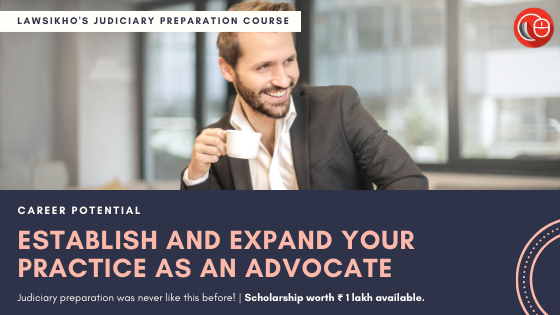
What is the role of the defence lawyer before this?
If in the case a complaint has been filed against the prospective accused and the accused has approached a defence Council for advice, lawyers should get to their work. The preparation of defence will start at the stage of the preliminary inquiry. If the matter involves the use of electronic evidence, then one should advise the client to preserve such matters. For example, if there are CCTV recordings that will be helpful in the case, the client should work to protect them. Similarly, if there is a call in question that might hold relevant information regarding the matter at hand, then the service provider can be contacted to preserve the call details. If there is a government party in question, then when can file RTIs. If the client plans to take a piece of alibi then any detail regarding that please should be conserved. A false plea of alibi damages a case a lot. The role of the defence lawyer is to interact with the client as much as possible, hear the client, make notes and advice. Always advise your clients to be honest with the investigative agencies.
Once the charge sheet is filed and before the trial begins, what is the role of a criminal lawyer?
If the target has been failed and the court takes cognizance of the same under section 204, it is the right of the accused to have every document that is the part of the charge sheet. If the investigative agency has hidden certain documents that benefit you and not made a part of the charge sheet, one has a right under section 207 to get the right to supply the document. Under section 91 CrPC, one can also summon the documents in question. Justice Udit Lalit’s judgment in Nitya Dharmadhikari case says if the investigative agency has the document and chosen to not file the document the accused has the right to move under section 91 and that document will also be considered at the stage of charge because in State of Orissa vs Debendra Nath Padhi said that at the stage of charge, the only document that will be considered will be from the prosecution’s side. Lalit’s judgment has given some dilution to Debendra Nath Judgement. A lawyer should start reading all the documents once he has possession. Never forget it is your statutory right to have every document that aids your client. Once you have obtained all the documents and are completely confident of a discharge, argue in the charge. Don’t argue the charge only to please the client. Avoid taking the findings of the court before the final stage.
After the charge has been framed, what next?
The first three stages are complete now. Don’t disclose your defence at the stage of the investigation. Wait for them. Make a complete chart identifying your defence post the prosecution side of the story. Consider the judgment Prafulla Kumar Samal v. UOI where the court lays down the principles of ‘charge’. You argue on a charge if you are fully satisfied otherwise go to trial. At the stage of the trial, there is prosecution evidence, defence evidence, and re-examination. Suppose that there is more than 1 witness to the same facts, one has the option of moving an application under S.231 that the defence will cross-examine all witnesses in one go so all statements are recorded are consistent and the prosecution does have time to improve their case.
Second, the prosecution relies on certain documents. See if it is the original document or photocopy. Raise the issue if photocopied. Object if the person concerned is not the author as then it cannot be exhibited. Never hesitate to raise objections.
Don’t allow the Public prosecutor to lead the evidence. The prosecuting agency cannot put the leading question. Object if it happens.
Once the examination in chief starts, make notes of what is being deposed by the witnesses. These days, the recorded statements can be acquired to get the examination in chief.
After that, the cross-examination will start. Don’t ever ask irrelevant questions to the witness.
There should be clarity in your mind before every question as to what result you want from that question. Be conscious at that time.
Anyway, all evidence will be laid in examination-in-chief, and what happens if everything is related to cross-examination?
In cross-examination, you work to demolish the testimony of the witnesses. For cross-examination, you should be the master of the facts. You must be aware of the law. To destroy someone’s trustworthiness along with the ingredients of the offence is not easy. You cannot do so until you have clarity about facts and the law. Reconfirmations of any kind, repetitions of any kind in cross-examination always will be damaged.
Your cross-examination must be linked to the examination in chief. Don’t cross-examine the witness on statements of s.161 and s.164. they are not the evidence. One is recorded by police and one is recorded by the magistrate. They are only made for contradictions.
When you start the cross-examination, cross-examine the witness topic wise. After concluding the topic, you give the suggestion.
If the witness is the eye witness, you must be very careful. Don’t toss irrelevant questions to someone who has seen the incident.
If you are doing the cross-examination, you must visit the place of the incident and must be familiar with the topology of the incident. In so many cases, we cross-examine the topology and the witness doesn’t support it. Under s.310, you can move the application to get the court to visit the place of the incident and verify the facts of the case.
If you are going to cross-examine the expert witness, don’t go empty-handed. You must read the literature on the subject. If you don’t have access to it, consult someone who has mastery over it. for example- if you are cross-examining a doctor, read medical jurisprudence. If you are cross-examining a handwriting expert, study the concerned literature.
Don’t irritate the witness. Unless you have their confidence, you cannot make a dent in the case of the prosecution. Try to read him to get him to sing your song. If the witness is polite, be polite. If the witness is tough, be tough. Witnesses generally cannot sustain long cross-examinations and they will reach the breaking point.
Do you prepare your cross-examinations questions?
I don’t believe in that. I recommend doing the cross-examination extempore. Once you prepare that questionnaire, you restrict your mind. Prepare the topics that you have to touch. Avoid the questionnaire just to please your clients.
How to prepare for a coached witness?
If you are experienced, you get to know whether he has been coached or not. If he is, he will make the statements as per s.161 or the witness will go in some very different tangent. You must, thus, make a boundary for him to enter and then you grill him. Create questions in a way where you limit the answers a witness can give. It is like playing Chess. Play a move, think 10 ahead.
Some examples, at this point, would be very helpful
While doing a cross-examination, there was a search and seizure memo. According to the victim, the seizure was at the hospital, and as per the prosecution, the seizure occurred at the victim’s house. The memo was signed by someone who was not a witness. One day, the writing and the signature just gave him a hint. When he checked the judicial records, the signature of the witness was the same as the lawyer. When he questioned the victim if he knew the witness, the victim said no. A false document was proved. Cross-examination is an art that requires constant improvement. After every cross, you will feel that you should have asked so many other questions. You are your competitor and this art develops with experience. 313 is very important. There is no compulsion for this but a right. 313 is the stage where all the incriminating evidence is put in front of the accused and seek an explanation. That statement can be without an oath. At that time, the accused is well within the rights to consult their councils.
Any accused can be a witness in his case under S.315. Lawyers have to make a strategic decision. If you are confident that prosecution has failed to prove their case beyond a reasonable doubt, don’t invite any more problems by leading the defence evidence if you don’t have supporting documents.
How to structure the final arguments?
Every document is very important. You may start by reading the charge. Then, tell which witnesses have been questioned and what evidence has been scrutinized. Then point out discrepancies. Always try to draw the attention of the judge. You need not have flowery English and you must present chronologically. If required, file written statements.
What are the common mistakes one must avoid?
Experience irons out all mistakes.
How to take the judge into account and navigate that?
Judges have different jurisprudential understanding. The Bar often puts labels on them but you can’t blame the judge. The bar must assist the judge with the facts of the case. You can delay, you can get it transferred or go to a higher court and get a favorable order. All this is a strategy. Again, a game of chess.
How to handle media pressure?
Fortunately or unfortunately, Mr. Pramod started his career in a high profile chamber that handled big cases. Even now, he handles a lot of hotshot cases. There is a lot of media pressure now. People sitting in a studio pass judgments. The media is the 4th pillar of democracy and it should do its duty to inform the citizens and not work to increase their ratings. Even in Andhra Pradesh, this became very clear.
LawSikho has created a telegram group for exchanging legal knowledge, referrals and various opportunities. You can click on this link and join:
 Serato DJ Crack 2025Serato DJ PRO Crack
Serato DJ Crack 2025Serato DJ PRO Crack


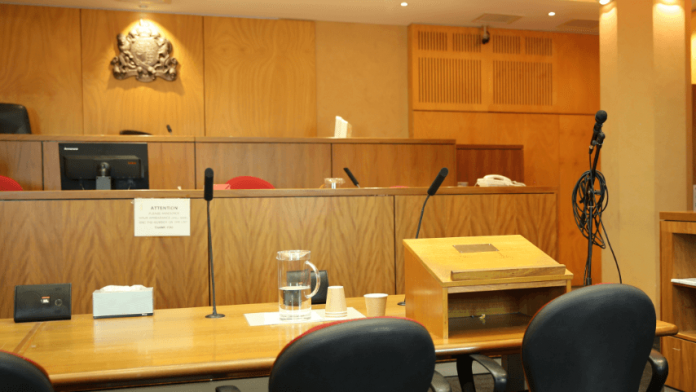


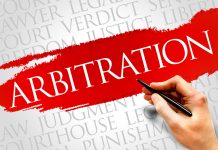
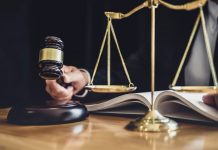
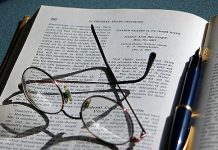


 Allow notifications
Allow notifications


